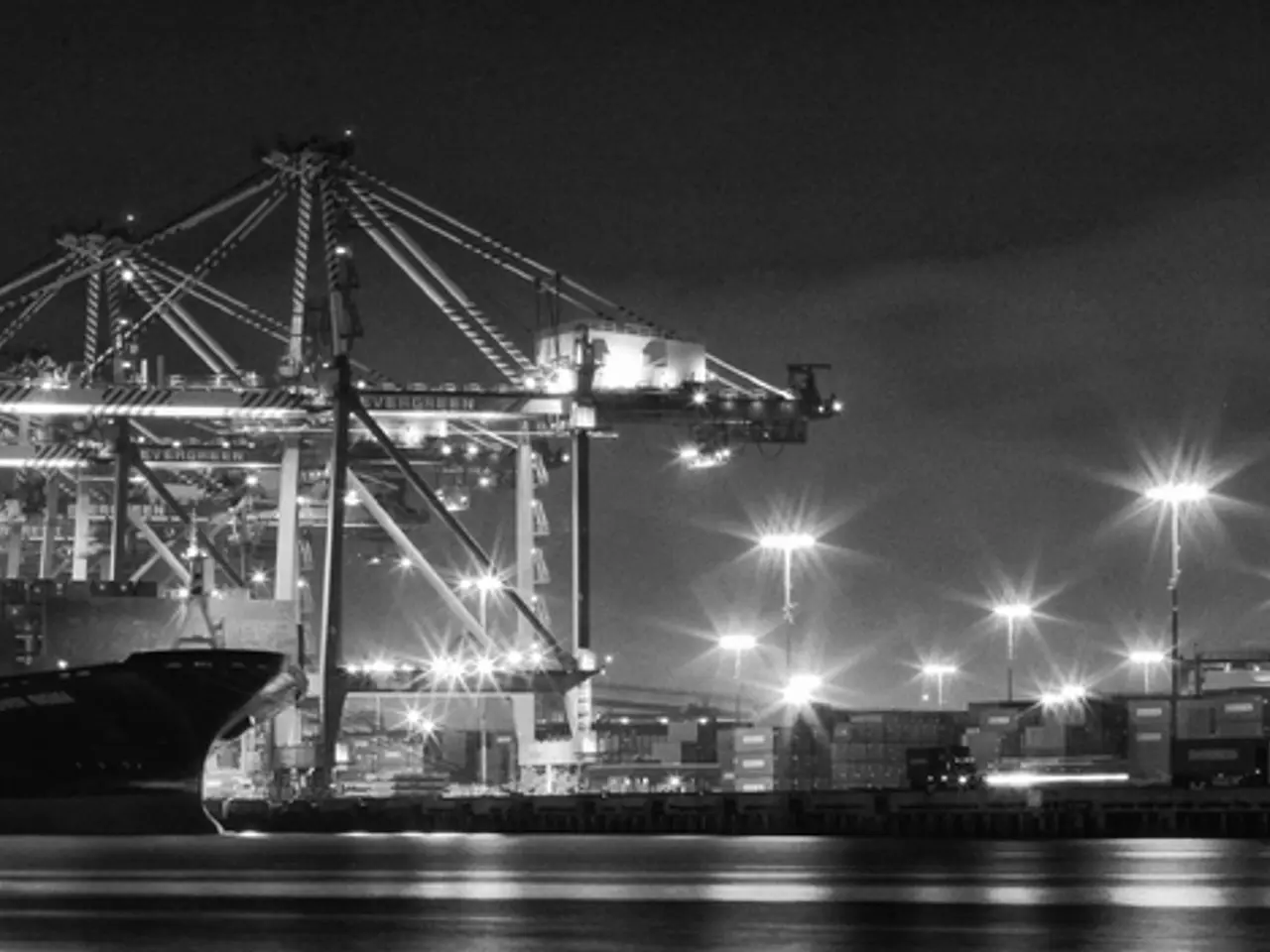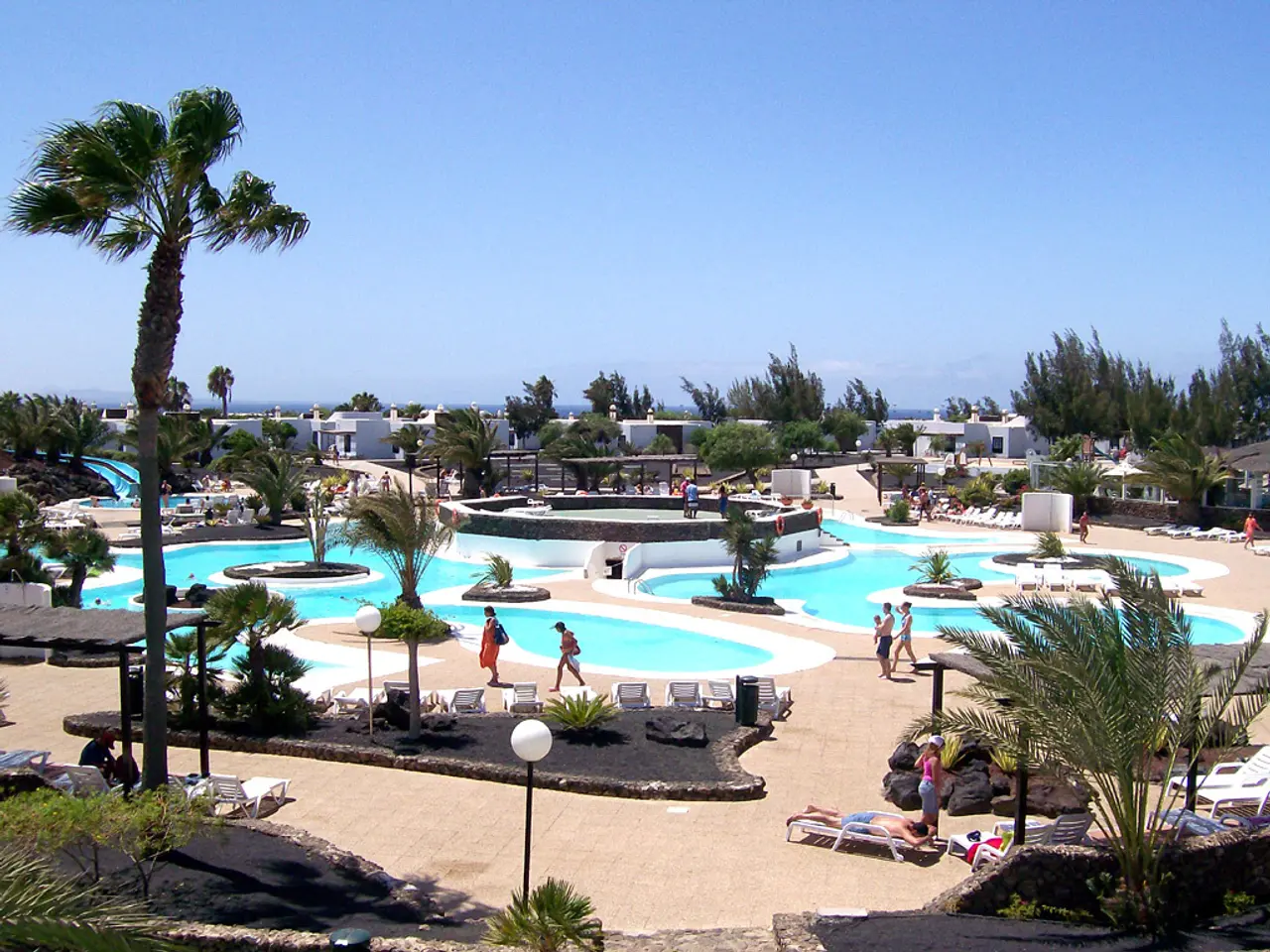Strike causes NOK to halt operations - warning issued
The ongoing strike by union ver.di members at the lock chambers of the Kiel Canal in Brunsbüttel and Kiel has led to significant concerns regarding its potential economic and environmental impacts.
The Kiel Canal, a heavily trafficked waterway, is one of the busiest artificial waterways worldwide. It connects the North Sea and the Baltic Sea, providing efficient, shorter maritime routes for commercial vessels. However, the current strike has caused a halt in traffic, leading to increased shipping times and costs.
The standstill in the Kiel Canal could disrupt the logistics chain for imports and exports, increasing operational costs for industries reliant on timely shipping. Delays could ripple through European and international maritime trade, impacting commodity flows and potentially raising prices for goods.
Environmentally, disruptions in canal traffic might force ships to take longer alternative routes, leading to increased fuel consumption and emissions. This detour would elevate the carbon footprint and pollution levels due to extended voyage times and higher fuel usage. Additionally, congestion caused by waiting vessels could increase local air and noise pollution around the Kiel Canal area.
Jens Knudsen of the Initiative Kiel-Canal has criticised the strike, arguing it threatens the canal's appeal. The federal government is also experiencing lost revenue due to the standstill in the Kiel Canal, as canal tolls are a significant source of income.
The union expects significant revenue losses, but the exact amount is difficult to estimate. The strike is part of a broader public service wage dispute.
The cities involved in the strike are Brunsbüttel and Kiel, both located in Germany. Although the specific strike details and impacts on the Kiel Canal in 2025 are not directly documented in the provided sources, these conclusions align with the known significance of the Kiel Canal lock operation to regional trade and environmental factors linked to maritime transportation. The canal's efficient operation is critical to avoiding longer runs and their associated environmental costs.
NDR (Schleswig-Holstein Magazin) reported on the strike from 11.03.2025, as written by Hannah Böhme.
- The disrupted traffic in the Kiel Canal may result in increased expenses for industries relying on its transportation routes, particularly those in finance sectors, as they may face increased operational costs due to delays in import and export logistics.
- The prolonged strike could also impact the transportation industry on a larger scale, as ships might opt for lengthier and more polluting alternative routes, potentially exacerbating environmental concerns associated with increased greenhouse gas emissions and pollution levels in both local areas and the wider ocean.




